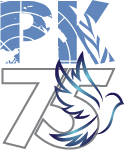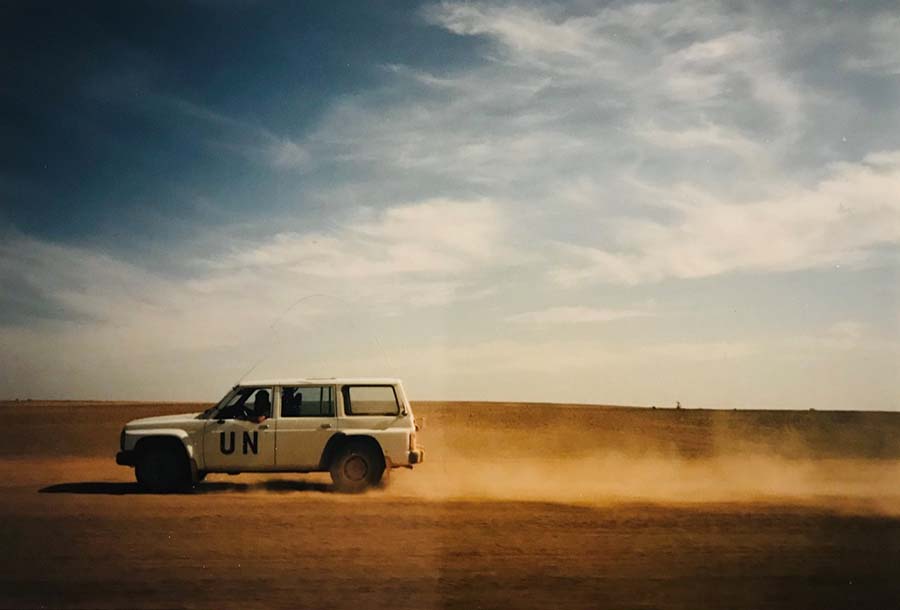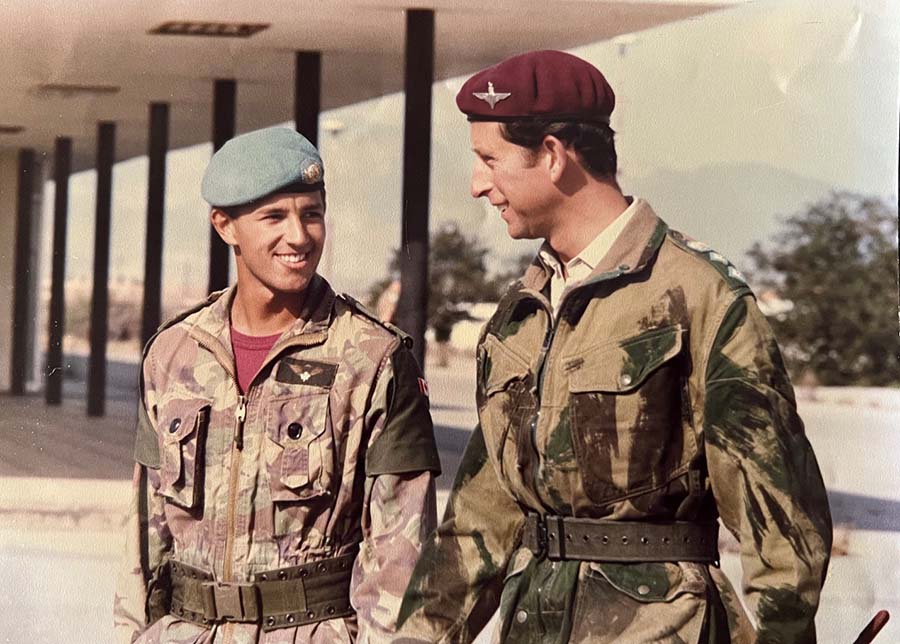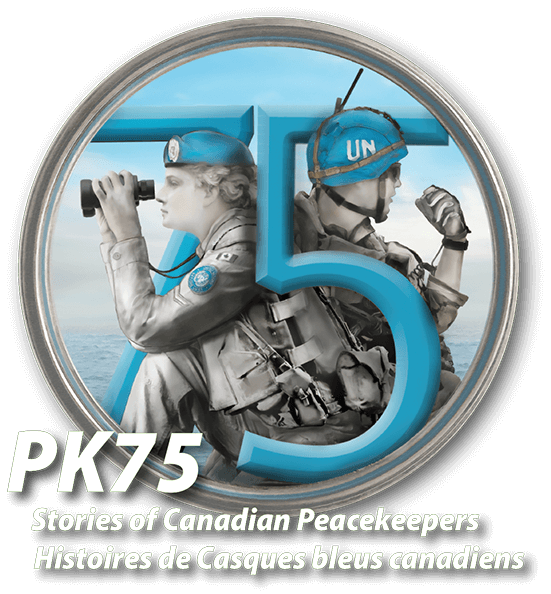

“I’ll eat the testicle.” But please, let me provide context.
In the summer of 1992, I was posted to the Mission Nations Unies Pour un Référendum au Sahara Occidental (MINURSO), in Western Sahara. It was a mission that involved monitoring a ceasefire line. The Canadian Armed Forces named its contribution “Operation PYTHON”. This was an interesting name choice, given that it was really the horn-rimmed vipers that we had to be constantly wary of.
Monitoring the line was made relatively easy by its 2,700km-long berm that delineated and separated the two factions: Moroccans on one side, Sarahwis on the other. It was made relatively difficult by the lack of marked roads and the estimated 9 million land mines strewn throughout the region. These mines were known to move under the shifting sands and so one could never be truly certain of where they might lay. This point became all too clear to me as one Moroccan officer was killed when his jeep struck an anti-tank mine one month before my arrival, and as my new American and Italian colleagues were sent home after sustaining injuries when hitting one less than two weeks after my arrival. I was to have been on that fateful patrol but was blessed with a bout of diarrhea, a gift I imagine, of adjusting to the new food. “Don’t worry,” I was told as I ran again to the outhouse, “you have a whole year ahead of you for patrolling!”
Despite these two mine strikes, I would learn that habit breeds complacency. There were countless trails throughout the desert, and we were always to stay on them. Some were clearly well-used, while many others had faded. To guide us we used the, then rudimentary and relatively new, Global Positioning System (GPS). So, when we headed off on a patrol, we would choose a trail and hope for the best. We always traveled in pairs. If the first vehicle hit a mine, the second would be able to call for help. As we traveled down the trails, the GPS would eventually indicate whether we were veering too far to the left or too far to the right of our selected waypoint. If the navigator — almost always me because I learned how to use it well — decided we hadn’t selected the best trail, we were supposed to stop, back up and then pick a better trail. But this was time consuming and irritating. More often the driver — on seeing me point and hearing me say, “It looks like we should have taken that trail more to the left” — would just break trail and veer to the left across open ground to get onto the other trail. When this happened, I would immediately pull my feet and arms into my sides and hope that the blast blanket lying on the Nissan Patrol vehicle floor would protect me. Then, as we reached the new trail, I would breathe a small sigh of relief and then put my right arm back on the open window and stretch my legs out again.
I spent most of my year at Team Site Mahbas, on the Moroccan side of the berm and about 700kms inland from the coast, near the Algerian border. Patrolling was occasionally done by air, aboard a Russian-built, Ukrainian-crewed Mi-17. More often though, patrolling was done by vehicle. On one patrol (this one with my Russian, Irish, and Chinese Teammates), we stopped at a Brigade encampment and were invited for lunch. It was on this occasion that the commander held out his hand holding two white, veiny, billiard-sized globes and offered them to us with an eager grin. We all looked at each other, with hard to conceal horror, and each in turn declined the offer. Noting that a culturally insensitive offence was about to be committed, I said, “I would love to try one!” Mercifully, the veiny coverings were removed, and the commander popped one into his mouth while I took the other. Also mercifully, I discovered a goat’s testicle tastes pretty bland, is smooth in texture, and not all that difficult to swallow. I would later also be introduced to another food: fresh, roasted artichoke. Delicious! I came to love the desert, my colleagues, and the Moroccans I met.
Biography
Though born in Lachine QC, David considers himself a native of Victoria, BC. After five years in Air Cadets, he crossed the Bay Street Armoury floor and joined the Canadian Scottish Regiment as a private soldier. It was here that he learned what being in the infantry was like; fun in small doses. But he had his sights set on becoming a pilot so he joined the Regular Force and in 1982, endured one horribly unsuccessful year at Royal Roads Military College. Having failed, he transferred to the Officer Candidate Training Program. Here, he was ultimately rejected by the Air Force — killing the dream to become a pilot — and then by the Navy — hurting his love for the eponymous song by the Village People. The Army begrudgingly gave him a shot based, apparently, on little else other than his honesty. In 1984, he was commissioned and posted to the 3rd Battalion, Princess Patricia’s Canadian Light Infantry (PPCLI), then located in Esquimalt BC, where he served as a Rifle Platoon Commander. Thus began one of the most ill-fitting though ultimately satisfying professional careers imaginable. Within four months, he was posted onto a year-long French Language Course following which he was posted to 2 Commando of the Canadian Airborne Regiment. For the next three and a half years, he served as a Rifle Platoon Commander (including a UN tour in Cyprus), Biathlon Team Captain, Regimental Assistant Adjutant, and finally, Adjutant of 2 Commando.
After leaving the Airborne Regiment, he was posted to Canadian Forces Base Calgary. Not yet 30 years old, Major Marshall was then sent to the Western Sahara as a United Nations Military Observer and Deputy Team Site Leader. As Deputy to his British Team Site Leader, he often found himself in charge of the Team Site that included, at various times, Americans, French, Irish, Kenyan, Italian, and senior-ranking Russians, Chinese, and Venezuelan cohorts. Posted back to the PPCLI, this time with the 1st Battalion, he served as the Administration Officer during the Battalion’s 1994 tour in Croatia with UNPROFOR. He was then posted to the PPCLI Battle School at Camp Wainwright, AB where he served for two years as the unit’s Adjutant. In 1997, the school was amalgamated with the Camp and became the Western Area Training Centre (WATC). He served as the WATC Operations Officer for two years.
In 1999, he was promoted to major and re-enrolled in university. This time, he was much more successful. Since then, he has held staff positions at National Defence Headquarters that include Desk Officer for Humanitarian Affairs and Rules of Engagement, Desk Officer for the Naval Task Group operating under Operation APOLLO, Desk Officer for the Africa missions, Staff Officer to the Deputy Chief of the Defence Staff, Desk Officer for Psychological Operations, Desk Officer for Information Operations and Plans for the Canadian Expeditionary Force Command, and Desk Officer within Military Capability Management under the Chief of Force Development. From September 2008 through March 2009, he was deployed to NATO HQ Sarajevo where he served as that HQ’s last Advisory Team Coordination Officer. In 2010 he was posted to the Strategic Joint Staff and serves to this day in the Arms Control Verification Directorate. In this capacity he has inspected, numerous times, units in Armenia, Azerbaijan, Belarus, Finland, Georgia, Kyrgyzstan, North Macedonia (pre-NATO), Serbia, and Ukraine. He regularly represents Canada on NATO’s conventional arms Verification Coordinating Committee. At the time of publication, he was preparing to support, for three months, the Canadian Delegation to the Organization for Security and Cooperation in Europe (OSCE), based in Vienna, Austria. Canada will Chair the OSCE’s Forum for Security Cooperation from September until December 2023, a once every 18 year occurrence.
Major Marshall is a graduate of the Canadian Forces Staff School, the Canadian Land Forces Command and Staff College, and the Lester B. Pearson Peacekeeping Centre’s Command and Staff Course. He holds a baccalaureate in Political Science from the University of Ottawa. He is a father of five (one a Combat Engineer Officer in the CAF, another a Non-commissioned Officer in the French Foreign Legion), a grandfather of three, and lives in Ottawa with his partner, Martin.

On patrol in the aptly named “Nissan Patrol” vehicle.

In 1986, while serving with the Canadian Airborne Regiment in Cyprus, I was Quarter Guard Commander for the visit of his then Royal Highness Prince Charles. A career highlight to be sure!


